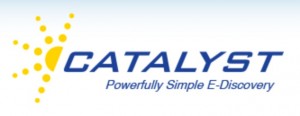♫ Silent night, Holy night
All is calm, all is bright..♫
Music by Franz Xaver Gruber, lyrics by Joseph Mohr, recorded by the Argyle Alumni Choir.
As in seasons past, I would like to pause from the hustle and bustle of our busy lives we all lead and warmly wish each and everyone the Best of the Holiday Season, Merry Christmas and a Wonderful and Happy New Year. With each passing year I feel it is even more important to reach out to friends and all those dear to us and remind them that they are the ones who truly bring meaning to our lives.
To all I wish for Peace, Hope and Happiness. For now and always, may your dreams become hopes, your hopes become plans and your plans become realities in the New Year.
My gift to you again this year is a few minutes of music and images, a time of joy and reflection in looking back at the year’s past events. This musical slide show combines two of my loves: photography and music. With some exceptions, most images have all been taken during the last 12 months with a Panasonic DMS-G3 camera with the 14-42mm Lumix G VARIO f/3.5-5.6 lens or an Olympus TOUGH with an Olympus 4.5-15 mm f/2.0-4.9 lens.
I hope this slide show and music (please turn your speakers on) brings to you a time of calm, joy and peace. The music is of course perhaps the most well-known Christmas hymn: “Silent Night”; from Wikipedia: “(German: Stille Nacht, heilige Nacht) is a popular Christmas carol, composed in 1818 by Franz Xaver Gruber to lyrics by Joseph Mohr in the small town of Oberndorf bei Salzburg, Austria. It was declared an intangible cultural heritage by UNESCO in March 2011.” It is performed by the Argyle Alumni Choir, Argyle Senior Secondary School, North Vancouver, British Columbia, Canada, copyright Frances Roberts, Director. Used with permission.
I hope you enjoy the combination of the music and the images. Please be patient – they do take a bit of time to load. The time between slides has been extended just a wee bit since last year some people said there wasn’t enough time per slide to really see the image. I hope this works better!
Best wishes for a safe holiday!
(For those interested, the slide show was created originally in PowerPoint, converted to Keynote and converted into a Quicktime file on a MacBook, then uploaded to ScreenCast.com).
Prior Seasons Greetings slide shows can be viewed here:
♫ If you reach for the heavens
You get the stars thrown in
Anthing can happen
… go and chase your dreams
you won’t regret it
Anything can happen
Anything can happen…♫
Music and Lyrics by Richard M. and Robert B. Sherman.
Mary Poppins! Now just what does she have to do with law practice management? The Broadway Musical version is currently playing at the Stanley Industrial Alliance Stage in Vancouver and if you are looking for an absolutely charming show this holiday season that will sweep you and everyone that you bring along into its magic that is practically perfect in every way, this is it. The acting is simply superb – the challenge for the actors on in taking such a well-known production to the stage is for them to place their own stamp on the characters and make them distinct enough from the 1964 movie which starred Dick Van Dyke and Julie Andrews to make it come alive and take you along with them. This production excels in that regard and the story unfolds before your eyes, assisted by clever sets, imaginative moving backdrops and some incredible special effects. The Stanley doesn’t have an orchestra pit yet the musical director has managed to fit the musicians somewhere backstage and have the story flow to their wonderful score.
So how does all this relate to law practice management? Managing a law practice is all about leadership, vision and change. As Bill Millerd, the Artistic Managing Director of the Arts Club says in his message about the production:
“Theatre can effect change …..and although we often go to the theatre for its ability to entertain us, the incredible history of theatrical writing has given us works that transform the way we look at life. Great works of art do that, and theatre, because of the special nature of the live medium, can transform us in more provocative ways.”
The message is a strong one – reach for the heavens and go and chase your dreams. Anything can happen!
Just remember to look for the Hidden Mickey!
♫ Let’s tell the future
Let’s see how it’s been done
By numbers, by mirrors, by water
By dots made at random on paper…♫
Lyrics, Music and recorded by Susan Vega.
(images: http://en.wikipedia.org/wiki/File:Fire_craker.jpg and http://en.wikipedia.org/wiki/File:San_Diego_Fireworks.jpg – creative commons licence)
“The Best Way to Predict the Future is to Create it” has been variously attributed to many authors, particularly Dennis Gabor.
Accordingly this is a call for all gentle readers to contribute their tips and predictions for 2014! Last year we heard from Stephanie Kimbro, Nate Russell, Tom Spraggs, Richard Granat, Jean Francois De Rico, Mitch Kowalski, John Zeleznikow, Andrew Clark, Colin Rule, Robert Denney, Ross Fishman, Noric Dilanchian, Steve Matthews and of course, Jordan Furlong.
I think that this is the most interested series of posts in the year and so I invite everyone to submit a post and we all can see what everyone thinks the future of law and legal practice will be like!
Let’s tell the future!
Making good choices in a bad situation
♫When people run in circles
It’s a very very
Mad world, mad world … ♫
Music and Lyrics by Tears for Fears, recorded by: Michael Andrews & Gary Jules.
All of us are DNA hardwired for ‘fight or flight’. Being lawyers, the fight option has been honed to a fine edge. However, there are times when the other option may be the better option. It is inevitable that we are going to encounter people who attack us, counter us, oppose our ideas or simply do not like us. Our immediate impulse is to react and attack. It is not easy but ultimately fighting is not the best reaction – it turns a one-sided reaction into a battle of two egos. We end up responding to a tussle of who is right?
As a practice advisor I see this scenario played out all the time. Giving objective advice when one is on the outside is completely different from being on the inside. Having had a recent personal encounter in such a situation, I can say that it is much harder to make the right decisions when you are the one involved. I went searching for answers. So here are some tips that I have found for helping to make the right choice:
- Anger feeds anger: This is a downward spiral that causes us to feel more compelled to defend ourselves the angrier our thoughts become.
- It is about them: Most times negativity is a reflection of the other person’s inner state. It isn’t about you – you just happen to be in the wrong place at the wrong time. They are frustrated, angry and in conflict and they are looking for someone to take down with them.
- It is a waste of energy: Do we really want to invest all that time and emotional energy in responding?
- It is going to affect you: If the fight response emerges, you are going to drag that negativity into other parts of your life when you get home. Do you really want to poison your positive home life this way?
- You can choose: Ultimately you can’t control what people do and say; what you can decide is how you react. You can choose a better way.
- Wait it out: Draft the response letter and lock it away in a drawer for Monday. Chances are by then you will have different – more rational – options to deal with this person.
- Forgive: Yes forgive. If you don’t then the negativity takes hold inside you.
- Go for a Run: Get away from the situation and expend some physical energy. You will feel better for it.
- Best/Worst case analysis: Negotiation theory speaks of BATNAs: The Best Alternative to a Negotiated Situation. What is the best and worse case scenarios if you do and do not respond.
- Evaluate from Your Perspective: Recall that this person is trying to draw you into their game plan. Ask yourself: Will responding to this person advance the things that are most important to me?
- Look for the Lesson: Inside each difficult situation is something that will help you grow as a person. Don’t lose the opportunity.
- Let Go: Write out all your thoughts about this situation – roll the paper into a ball and throw it away. Now – carry on with your life!
Responding to mad people is not easy. If it was, then the world wouldn’t have negative people running in circles making life difficult for others.
This article originally appeared in the Canadian Bar Association, British Columbia branch’s publication BarTalk.
♬ Na je nun ta sa ro un in gan jo gin yo ja
Ko pi han ja ne yo yu rul a neun pum gyo gi nun yo ja
Ba mi o myon shim ja ngi tu go wo ji nun yo ja
Gu ron ban jon i nun yo ja
…
Oppan Gangnam Style
Gangnam Style
Op op op op oppan Gangnam Style
Gangnam Style
Op op op op oppan Gangnam Style…♬
Lyrics and Music by: Jai Sang Park and Keon Hyung Yoo, recorded by Psy.
My good friend, lawyer and entrepreneur John Treddinck has done it again. John is the CEO and founder of Catalyst Repository Systems. Catalyst is no ordinary company – it has been inducted into the Smithsonian Institute as a recipient of the prestigious Computerworld/Smithsonian Innovator Medal (not bad for a legal technology startup!). It has been repeatedly named a top e-discovery provider by Socha-Gelbmann, and its products have won multiple awards for innovation. John has been named a top 100 global technology leader and one of the law’s leading innovators.
Catalyst is now expanding to South Korea. Now most companies would do a simple press release. Not Catalyst. Not John. Not *their* kind of marketing!!
John turned to JibJab and Catalyst did their announcement in Gangham style.
Clever, humorous and catchy.
Here it is (turn up your speakers! …and read John’s translation of Psy’s lyrics…):
That’s it John..do it Gangham Style!
♬ Stay frozen or face the truth
Time won’t wait for us to choose…♬
Lyrics, Music and Recorded by Fountain of Tears.
This is the third and final post in the 2013 Tips and Predictions theme. It has been wonderful to read such informative and insightful thoughts from all around the globe on the future of law. Accordingly, here are the last but certainly not the least of these great ideas:
Stephanie Kimbro, MA, JD, is the Director of the North Carolina branch of Burton Law, LLC. Prior to working with Burton Law, Stephanie operated a virtual law office for six years delivering unbundled North Carolina estate planning and small business legal services to clients online. She is the recipient of the 2009 ABA Keane Award for Excellence in eLawyering, was named an ABA Journal Legal Rebel in 2010 and won the Wilmington Parent Magazine Family Favorite Attorney Award six years in a row for her virtual law office. Stephanie has published two books, Virtual Law Practice: How to Deliver Legal Services Online, ABA, October, 2010 and Limited Scope Legal Services: Unbundling and theSelf-Help Client, ABA, March 2012. She is also the co-founder of Virtual Law Office Technology, LLC (VLOTech), which was acquired by Total Attorneys in the fall of 2009.
In addition to practicing law, Stephanie writes about the ethics and technology issues of delivering legal services online and is interested in the use of technology to increase access to justice. She has provided presentations and guest lectured for many state bars, law schools and other organizations interested in legal technology and other law practice management topics.
Kimbro a member of the ABA Standing Committee on the Delivery of Legal Services and serves on the advisory board of the International Legal Technology Standards Organization (ILTSO), the board of the Legal Services National Technology Assistance Project (NTAP), and is a member of the ABA eLawyering Task Force, Chair of the ABA LPM’s Ethics and Professional Responsibility Task Force, a member of the North Carolina Bar Association (NCBA) Law Practice Management (LPM) Council, and the NCBA Tech Advisory Committee.
Stephanie has graciously provided us with a very insightful look into how technology is going to change the way that legal services are delivered, marketed and structured. Here are her thoughts:
- We will continue to see the number of legal technology start-ups being introduced to the consumer legal marketplace. These companies are going to focus their efforts on consumers, but will also attempt to cultivate strong attorney networks that will provide their services with the value add of licensed legal assistance. Existing legal tech startups may be acquired by larger legal service companies or fail to obtain the funding necessary to scale to the next level. Of the technologies introduced in these platforms we will see two interesting developments that will be a little different than the typical Q&A or forum platforms typically offered to consumers. These companies are adding better matching systems using algorithms, consumer preferences, and online behavior to match the legal needs of the individual with the appropriate legal guidance/forms and potentially with the best lawyer to handle their particular legal need. We will also see the expert systems in some of these platforms increase in sophistication as they learn and improve from user feedback.
- The focus of these companies’ services will start to shift more from business law and startup legal services to more personal legal services for the average consumer. We may see companies negotiating with other non-legal social media and networking applications for access to user data which may be used to help predict or identify consumer’s legal needs as a way to target advertising for their platforms.
- Lawyers will become more aware of the need for online marketing that extends beyond the use of social media and focuses more on brand building online using analytical tools that focus on ROI rather than just online reach. As part of this, more lawyers, especially solos and small firms, will consider joining forces with one or more of these legal startups. Navigating those networks and figuring out how to convert any leads generated from them into paying clients will be a learning process for both the lawyers and the companies looking to maintain and develop strong relationships with lawyers. As a result of the increased engagement by lawyers with consumers through these networks, there may be increased scrutiny of the potential ethical issues that might arise from these online interactions.
- From the consumer perspective, we will continue to see the public turning to the Internet to look for personal legal services. The law suit between Legal Zoom and Rocket Lawyer may provide us with some interesting information about quality, quantity, and process of massive online delivery as well as some fun conversation over the next year. More of the public will be aware of virtual law firms as an alternative online option, but the majority will still turn to the larger online brands of Legal Zoom and Rocket Lawyer when those can be used instead. Accordingly, lawyers with virtual law offices will learn to efficiently automate and sell basic legal documents and focus their energy on marketing their online brand and their bespoke work or niche practices to differentiate themselves online from other virtual practices and the services of the online legal service companies.
- Even clients of larger law firms by this point have realized that their firms cannot justify the traditional high billable hour and will pressure them to use more cost-effective methods of delivery which will include an emphasis on outsourcing and the use of online management and collaborative systems. More sophisticated clients will also be questioning their firm about the use of expert systems that help not only save on costs, but that can predict potential outcomes (and therefore the effectiveness of different strategies) for the client’s matter and whether the firm employs such systems. Quantitative legal prediction as a resource for basic consumer needs or for use by solos or small firms will not be widely available in the next couple of years. However, larger law firms with sophisticated clients who can afford to invest in the technology may start the process of cumulating data that will build systems to predict legal outcomes and assist in decision making.
- I think only a small number of law firms will still be forward thinking enough to offer forms of online dispute resolution in their practice areas. As complementary to their traditional services, rather than ODR, some firms may integrate the use of simpler online negotiation and settlement tools, such as the use of the app PictureItSettled, or online game-theoretic bargaining systems, such as those created by FairOutcomes.
- I also predict that a slow moving and quiet revolution will start this year in the legal services community as the Legal Services Corporation (LSC) and state legal aids go through a major shift in thinking about how online and mobile delivery can increase access to justice. (The LSC is holding a second technology summit this January.) The collaboration with legal service companies, private practitioners, and law schools will result in a less fragmented picture of access in our country and push all of these parties out of their bubbles and into reevaluation of how working relationships between themselves and existing resources can be used to increase pro bono and self-help assistance. Limited scope representation handled pro bono or even low bono will become a standard introduced and accepted by most state legal aid organizations as they realize that this will encourage the increased volunteer activity of private practitioners and the donation of technology and resources from legal service companies. Years from now, this revolution and the increase in access from the innovative collaborations that result will provide empirical, results-based proof that we can use to argue for less restrictive rules on non-lawyer ownership of law firms and the removal of lawyer advertising rules that restrict innovations in delivery methods.
Nate Russell hails from private practice where he was a civil litigator and family lawyer. Before his legal career he worked in media, including TV and internet. Currently Nate is a legal community liaison at Courthouse Libraries BC, where he brings his legal experience and his interest in emerging information technologies to bear on improving the programs and resources Courthouse Libraries BC offers lawyers in British Columbia.
Nate’s objective is to help fellow lawyers, especially those in small firms and solo practice, get the best out of our branches and improve their research and practice management skills, so they can best serve the public.
With Nate’s background, it is not surprising that his predictions lie in the area of continuing legal education and professional development:
- I would like to predict, though it may be more to hope, that the same good sense that gave rise to the elimination for 2012 of the “audience test” for CPD accredited activities like teaching and writing will continue forward.
- For 2013, someone will propose (and it will not be strenuously or convincingly argued against) that CPD-accredited writing ought to expand beyond the rigid confines of “law books or articles intended for publication”, to include practice-oriented blogs, and writing for PLEI websites that may or may not result in ink-on-paper-bound-in-cardboard. Other criteria could replace an “intention” to publish, for example criteria that a law-related web article or blog post of a minimum length must appear on a site controlled by an established provider of public legal education and information and/or information for the legal community (i.e. LSS, Justice Education Society, People’s Law School, Courthouse Libraries BC or Clicklaw).
- The elimination of the “audience test” has raised the ladder to let CPD out of the ivory tower, but its presence has yet to be felt fully in the streets.
- That there is a tremendous service-mindedness among the Bar. That is beyond doubt. In a CLE-TV presentation this summer Access Pro Bono shared the statistics that in 2011 alone 600 lawyers donated over 7,000 of volunteer hours. The energy is there, and I predict that with a little enablement (by the Law Society and non-profit legal information institutions in this province), a vast and comprehensive body of online commentary could be produced sooner than we may think. Let’s check back in December 2013!
Thomas Spraggs holds a Bachelor of Laws and Master of Laws degrees. He articled at a personal injury firm in Alberta and continued as an associate at that firm before returning to Coquitlam, BC to lead Spraggs & Co. Thomas has applied innovative approaches to practice management and an progressive approach to technology to lead Spraggs & Co to become a highly respected award-winning firm. Tom is currently undertaking an MBA at the same time as leading his busy firm.
Tom is also a former competitive swimmer which would help explain how he manages to carry on his extensive trial practice. Thomas is a member of the law societies of British Columbia, Yukon and Alberta. He’s a member of the Trial Lawyers Association of BC and the American Association for Justice.
Tom states that after much thought here are his 2013 predictions in regards to technology and the practice of law:
- 2013 will be less dynamic from a technology change perspective than in previous years. Management accountants in larger firms will be challenged as to what is traditionally perceived as ‘needed technology vs. desired technology.’ Individually, lawyers will probably ignore the boring technology at the office and opt for cool and innovative products that access data from the cloud. Clients also expect instant access to relevant information from their lawyers outside of the office which bootstraps the cloud based computing model further. The new and highly anticipated Windows 8 tablets, in addition to the ever amazing iPad, will become a catalyst for significant increases in tablet workplace computing as productivity increases. These productivity increases are both perceived and measurable, this will likely result in the conclusion that these tools are highly effective, especially for collaboration. The management accountants realize that ‘needed technology’ which is usually a desktop networked over a LAN is an assumption that is worth challenging.
- The cloud will continue to evolve as people realize that licensing software on a subscription basis is good value. Renting software that is constantly updated as it is used/needed is far more economical than the old business models. 2013 will also be the year that voice recognition is everywhere and so will awkward misspellings in emails as a result. Forgiveness of such computer generated typos…, I don’t know.
- Mobile computing is also allowing lawyers to work in more places away from the office, which is facilitating better work/ life integration (not really balance though) and a mini hiring boom for experienced and skillful female lawyers who recognize opportunities for working with progressive firms as a result of these technologies increases. All in all, the future is mobile cloud based computing which is now trending to normalcy. Lawyers are keeping in step.
As the writer of this blog, this is my chance to chime into the discussion. A little about myself. I am David J. Bilinsky, the Practice Management Advisor/Consultant and lawyer for the Law Society of British Columbia. I was recently named a Fellow of the National Center for Technology and Dispute Resolution (NCTDR) at the University of Massachusetts. I am also a Fellow and past Trustee of the College of Law Practice Management and past Editor-in-Chief of ABA’s Law Practice Magazine.
I am an adjunct professor at Simon Fraser University teaching a totally online, graduate level course in the Masters of Arts in Applied Legal Studies program. This MA program received the 2011 Award of Excellence from the Canadian Association for University Continuing Education. I have also designed and will be teaching a course on legal technology for the University of Toronto Law School in 2012-13 as well as a course for the law school at the College of William and Mary in Williamsburg Virginia.
My mission in life is to empower lawyers to anticipate the changes, realize the opportunities, face the challenges and embrace the expanding possibilities of the application of practice management concepts to the practice of law in innovative ways that provide service excellence.
I am fortunate to be the founder and Chair of the Pacific Legal Technology Conference (next conference October 2013!) and a past Co-Chair of the American Bar Association’s TECHSHOW. I have a background in Mathematics and Computer Science (BSc) as well as a law degree from the University of Manitoba and an MBA from UBC.
Last year I did a Top 10 list of predictions (the success or lack there of to be determined by you the humble reader at the end of this post!).
Following that tradition, here is my Top 10 List of Predictions for 2013:
#10 Law Schools will embrace distance education as a way to expand their market and to bring in sessional lecturers that ordinarily would be cost-prohibitive:
These new lecturers will expand the traditional curriculum to offer much more practical legal training to allow newly graduates to launch into practice to overcome the difficulty in securing articling and associate positions in traditional firms.
#9 Education in Law Schools will incorporate greater MBA-related training:
This follows prediction #10 in expanding the range of courses offered by law schools to law students to better prepare them for a career of law practice by grounding them in business concepts and entrepreneurial outlooks. Related to this will be the explicit recognition by legal regulators that knowledge of legal practice concepts (management, technology, marketing and finance) is as integral to the practice of law as is knowledge of ‘black letter law’. This was affirmed in part by the ABA in August 2012 recognizing that knowledge of technology is a facet of competent representation and revised their model rules accordingly.
#8 Non-lawyers involved in the delivery of legal services:
Ontario and BC are currently expanding the ability of paralegals to render legal services. I believe this will be matched in other Canadian and American jurisdictions. I believe other near-legal professions will call for greater powers to render legal-type services in order to match the increasing need for affordable access-to-justice (such as Notary Publics in BC).
#7 Lawyers as Leaders:
The profession will call for greater emphasis for lawyers to assume leadership roles in many facets of society in order to create new opportunities for law graduates and lawyers and to expand the influence that lawyers have on society (and to prevent the fleeing of lawyers from the profession).
#6 Effect on Judiciary / Court services:
Courts have been among the last institutions to be affected by the reforms created by the Internet. Either courts will restructure and incorporate the potential cost/benefit advantages offered by Online Dispute Resolution or Alternative Dispute Resolution – or – new tribunals will be established to take certain types of cases away from the courts and place them in new tribunals that will incorporate ODR reforms.
#5 Access to Justice:
Legal service organizations (“Legal Aid”) will be looking for ways to increase access to justice via reforms as their budgets become increasingly squeezed and the calls for them to service more clients increase. I would look for Legal Aid to move beyond ‘bespoke’ legal services and more of a commodity-based delivery structure.
#4 Globalization Effects will continue to be felt:
Large law firms in Canada will be chomping at the bit to join in the globalization movement that is happening across the world. This will place new pressures on legal regulators in Canada to loosen how lawyers are regulated in Canada to match reforms in other parts of the world.
#3 Alternative Business Structures:
In order to get around the rigidity of the Multi-disciplinary Partnership concept, there will be an increasingly-louder call for lawyers to be able to enter into looser business structures that do not call for complete lawyer control of the business entity. This will be due to the reforms happening in other parts of the world lapping on our shores.
#2 Greater Uniformity across Jurisdictions:
Canadian law societies will be adopting a common model code (for example, The new Code of Professional Conduct for British Columbia which comes into effect on Jan 1, 2013 and which is based on the Federation of Law Societies’ Model Code of Professional Conduct). Globalization efforts will call for increasing uniformity across jurisdictions for laws and regulations in order to allow for ease of commerce.
#1 Technology will continue to reform Law and Legal Practice:
The relentless march of Moore’s Law and the breathtaking application of technology to all types of problems will mean that those who deliver legal services will continue to be under pressure. Not only must lawyers understand technology (see the ABA reforms in #2 above) but consumers of legal services understand technology – and will be waiting for lawyers to latch onto the advantages that are offered and reform how they render legal services as a result. If lawyers do not – then there are any number of organizations (see LegalZoom supra in #2 below from 2012) that are only too willing to try to apply technology to the practice of law. This will result in such aspects as the unbundled practice of law, the continued emergence of the e-lawyering movement and the continued growth of Online Dispute Resolution. While the “technological singularity” may yet be in the future, there is no denying that technology is the most disruptive force working on the legal profession at this time.
Now:
One thing about being a crystal-ball gazer, you should look back and check your accuracy! Accordingly, I wanted to look at Last Year’s Predictions to see what progress (if any!) was made along my (predicted) lines:
#10: Mobile/Tablets will Invade the Enterprise:
Accordingly to the 2012 LTRC (the Legal Technology Resource Center of the American Bar Association) Survey on the use of Legal Technology by lawyers, 33% of lawyers use a tablet computer (and of those, 91% are iPads).
#9: Regulators will Start Putting some Governing Principles around The Cloud:
The Law Society of British Columbia in 2012 released its Cloud Computing Working Group Report and will be shortly releasing their Cloud Computing Checklist for use by lawyers and law firms considering going to the cloud.
#8: Web-based Collaboration with Clients will Emerge as Clients Reject Email as too Insecure:
Well I was a bit overly optimistic here. Again the 2012 LTRC survey found that secure portal use was up to 25% from 20%. A modest increase but by no means a home run. What was interesting is that solo/small firm adoption of secure portals accounted for most of this increase as their use of this technology grew from 1% to 11%
#7: Social Media Impacts will continue to be Felt in Litigation, Employment and Family Law in Particular.
Social media evidence is growing and shows no signs of abating. Social media evidence has become a lightening rod of sorts; in some jurisdictions, steps are being taken to limit a prospective employer’s ability to gain access to a potential employee’s private social media pages.
#6: Security and Privacy will Emerge as a Concern for Clients of Law Firms.
I think the fact that encryption use by law firms has grown from 23% to 33% of reporting firms according to the 2012 LTRC study shows that law firms and their clients are increasingly concerned about the security of their communications.
#5: Law Schools will Have to Prepare Students to actually Practice Law.
According to an August 4, 2012 article in the ABA Journal:
“Law schools have dramatically increased all aspects of skills instruction–including clinical, simulation and externships–in the wake of a 2004 change in law school accreditation standards requiring that students receive “substantial instruction” in skills generally regarded as necessary for effective and responsible participation in the legal profession, according to the survey, conducted by the curriculum committee of the ABA Section of Legal Education and Admissions to the Bar.”
If American law schools are changing then it won’t be long before Canadian law schools follow suit.
#4: Self-Regulation of Lawyers will come under Increasing Scrutiny, not for Ethical Reasons but for Economic Ones.
An article published in the 80 Fordham Law Review 2761 (2011-2012) entitled “Comparative Perspectives on Lawyer Regulation: An Agenda for Reform in the United States and Canada” by Deborah L. Rhode and Alice Woolley identifies the problems in American and Canadian legal regulation and proposes reform strategies based on initiatives being taken in Australia, England and Wales.
#3: Innovations being tried in the UK and elsewhere will be felt in North America. Lexpert reported on June 29, 2012 as follows:
[P]artners at London-based Herbert Smith LLP and the Australian firm Freehills agreed to a merger that creates Herbert Smith Freehills, the eighth-largest firm in the world, with 2,800 lawyers.
The global behemoth will be led by joint CEOs and managing partners David Willis and Gavin Bell, who in their press release alluded to the growing importance of global firms, and the advantages of international structures.
“This merger,” said Willis “will therefore put us in a strong position to provide clients with the single global offering they increasingly demand.”
“The merger,” said Bell, “will give Herbert Smith Freehills the platform to become the leading global law firm across Asia Pacific, a region likely to see continued substantial growth and to become an increasingly important part of the global legal services market.
The full-equity continues to exploit reforms in the UK and Australia that allow firms to create alternative business structures (ABSs), raise equity internationally from non-lawyers and (in Australia, at least) list shares for public trading — advancements toward legal corporatization that are prohibited in Canada and the US.
#2: LegalZoom and other Online Providers will emerge as a Major Competitive Threat to Main-Street Lawyers
LegalZoom.ca is now here. How much of a threat is it at the current time? Regarding the parent company, LegalZoom.com, according to Techcrunch.com in an article dated May 11, 2012:
LegalZoom offers documents and subscription services to make it easier for individuals and businesses to accomplish basic legal tasks. As evidence of the company’s traction and impact, the S-1 says LegalZoom has served about 2 million customers in the past 10 years. It also says that in 2011, those customers placed 490,000 orders on the site, and during that period, more than 20 percent of limited liability companies formed in California did so through LegalZoom.
The company’s revenue has been growing steadily, if not dramatically, in the past couple of years — it was $156 million in 2011, up from $121 million in 2010 and $103 million in 2009. LegalZoom also became profitable for the first time last year, with $12.1 million in net income.
So it appears that as far as being a major competitive threat in Canada, that is not (yet) true. But I am hedging my bets on this one.
#1: ODR and other Alternative Dispute Resolution Methods will be Embraced by Cash-Strapped Governments
The Ministry of Justice in British Columbia announced the Civil Resolution Tribunal Act that subsequently received Royal Assent on May 31, 2012.
According to the news release from the BC Government:
[T]he Civil Resolution Tribunal Act will create an independent tribunal offering 24/7 online dispute resolution tools to families and small business owners as a speedy and cost-effective alternative to going to court. The tribunal would address disputes by providing parties with information that may prevent disputes from growing and resolve disputes by consent or, where necessary, by an independent tribunal hearing. Resolving a dispute through the tribunal is expected to take about 60 days, compared to 12 to 18 months for small claims court.
Giving families alternatives to seeking solutions in court is among the B.C. government’s justice reform initiatives to achieve efficiencies and deal with growing resource pressures. The February 2012 Green Paper, Modernizing British Columbia’s Justice System, identified tribunals as a simple and less expensive solution to easing delays in the court system.
So there you have it…the tips and predictions for 2013 from thought leaders all over the globe. There is one certainty – as lawyers either we stay frozen or face the truth – Time won’t wait for us to choose.
♫ But I see your eyes at night
And you know what’s wrong
And you know what’s right.
The future…♫
Lyrics, music and recorded by The Drums.

Further to my prior post, here is Part Two of the tips and predictions from around the world for 2013!!
Richard Granat is a lawyer and a recognized expert on the delivery of legal services over the Internet. He is also the Founder of Granat Legal Services, P.C., in Washington, D.C., one of the first virtual law firms in the United States. Richard also serves as Co-Chair of the ELawyering Task Force of the Law Practice Management Section of the American Bar Association and serves on the Standing Committee on the Delivery of Legal Services of the ABA.
In 2009, the ABA Journal recognized Richard as one of 50 Legal Rebels throughout the Unites States – individuals who are engaged in changing the legal profession. In 2010, Richard received a Lifetime Achievement Award from the American Bar Association in recognition of his innovations in the delivery of legal services,
Richard has been involved in developing innovative legal services delivery systems for over 30 years, first as part of the initial working group that created the National Legal Services Program, and then later as Director of the Center for Legal Studies at Antioch Law School in Washington, D.C., the nation’s first clinical law school, and later President and Dean of the Philadelphia Institute for Paralegal Training, the nation’s first paralegal school. He is an Fellow of the College of Law Practice Management.
Richard’s involvement in the emerging area of e-lawyering is indicative of where his predictions lie:
- We will see more venture capital flowing into legal start-ups and more launches of new companies in the legal industry. Watch for http://www.judicata.com , http://www.ravellaw.com; http://www.lawpal.com , and http://www.lawgives.com to launch and have an impact on various sectors of the legal industry.
- Watch for more online dispute resolution web sites.
- LegalZoom will settle their law suit against RocketLawyer.
- Watch for the emergence of branded networks of law firms such as http://www.legalforce.com and Jacoby & Meyers serving consumers.
- Watch for disruptive web sites like http://www.attorneyfee.com to offer outcome-based evaluations of individual law firms leading toward more transparency in lawyer selection.
Jean-François De Rico is a member of the board of directors of Langlois Kronstrom Desjardins, one of the largest law firms in Quebec, with nearly 100 professionals working in its offices in Montréal and Québec City. He works with the other members of Lexing, the first international network of lawyers dedicated to technology law. He is a member of the steering committee of Sedona Canada, and of the executive committee of the Law Practice Management and Technology Section of the Canadian Bar Association He frequently speaks at conferences on the legal framework of information technology, and on issues related to e-discovery, social media and their impacts on the practice of law.
Jean-François’ prédictions lie in the area of privacy and the law:
- Data breach notification obligation will be enacted (PIPEDA modification bill);
- Creative lawyers will introduce intrusion upon seclusion cases in other provinces;
- B.C. Courts will clarify what media should be accredited for tweeting in the Courtroom;
- Cybersecurity will yield even more discussions….
- And on a more personal note, I will finally decide which tablet is right for me…
- RIM’ blackberry 10 will [I really don’t know anymore]….
- And in the no kidding category : The Canadian Anti Spam act will come into force;
- There will be provincial elections for the second year in a row in Quebec;
Mitch Kowalski is an innovative thinker, writer, speaker and lawyer from Toronto, Ontario. He is the author of the critically acclaimed, ABA best-seller, Avoiding Extinction: Reimagining Legal Services for the 21st Century. He speaks regularly on legal service innovation as well as blogging on legal matters for the National Post’s blog, The Legal Post and on innovation in legal services for Slaw.ca. Mitch’s print articles have appeared in Lexpert Magazine, The National, The Advocate, The Hong Kong Law Journal, The Globe and Mail, and the National Post. He teaches innovation in law at Western University Law School and at the University of Ottawa Law School. Mitch is one of the co-founders of lawTechcamp Toronto, a co-ordinator of LawSync and was selected as one of the Fastcase Top 50 Global Legal Innovators in 2012.
2013 – Change is Hard:
Last year I made 8 predictions of which 4 came true: another large firm merger; many law societies looking at Alternative Business Structures; more aggressive GCs; and a law school (kind-of, sort-of, maybe) looking at a type of practical training element to its classes.
Unfortunately, I see 2013 as a flat year in terms of legal innovation and so I have limited my predictions to 5.
Prediction #1
The articling crisis in Ontario will continue to worsen. Ontario’s Law Practice Program run by a third party won’t come into force until 2014, but 2013 will see a number of players step-up to offer to run the program, including at least one law school. My long term prediction is that one of these players will eventually make the LPP so much better than articling (which, quite frankly, would not be that hard to do), that articling will eventually die a natural death. And twenty years from now, lawyers will look back and wonder what all the fuss was about.
Prediction #2
This is perhaps the most obvious prediction for 2013 – another major Canadian/UK law firm merger will occur. With the recent formation of Dentons and yet another Norton Rose merger, Canadian law firms outside of the Seven Sisters will be furiously searching for a dance partner before the music stops. The key however will be integration. Merging is easy – making it all work is the hard part. And the last thing the Canadian legal industry needs is “two or three rocks tied together in an effort to make themselves float.”
Prediction #3
Some national firm will finally wake up to the benefits of putting on-shoring services in a low cost centre within Canada; for example creating such a centre in St John or Moncton, cities well-suited for bilingual work. I understand that McCarthys has created, or is creating a Legal Process Outsourcer within its hugely expensive downtown Toronto office space – a move which, if true, demonstrates a complete misunderstanding of what on-shoring is all about.
Prediction #4
One or two large Canadian law firms will, in an effort to appear innovative to their clients, create a Director of Innovation role, but that person will not be given the resources or top down buy-in/support necessary to effect change. Yes, I took my angry pills today.
Prediction # 5
Now for the pie-in-the-sky moment which I daily pray will come true. Saskatchewan will become the Delaware of Canada by being the first province to permit Alternative Business Structures that are controlled by non-lawyers. The rush of Canadian and international firms to take advantage of this structure will not only generate additional income for that province’s law society, but make it the envy of the country.
- My guess is within the next decade, Canadian and US law schools will require their full-time staff to have PhDs. Definitely less important for sessional staff. (Editor: Whew ! As a sessional lecturer I can continue to lecture without a PHD!)
We will continue to look to the future and see what is right in the third and final post in this series!
♫ I can see the future
Step into tomorrow
I can see the future
Journey to forever
Movin’ on
And we’re movin’ on…♫
Music and Lyrics by Graham Donald Harvey, Jean-Paul Maunik and Randy Hope-Taylor, recorded by Incognito.
John F. Kennedy once said “Change is law of life. And those who look only to the past or present are certain to miss the future.”
In this blog in December 2012, we are going to look at the life in change in law – particularly in trying to predict the changes that will occur in 2013. For the last couple of years I have been pulling together predictions and pulling them into articles in late December that contain these predictions.
Last year we heard from:
Steve Gallagher, Tom Spraggs, Darin Thompson, Anatoly Dvorkin, Barney Christianson QC, Steph Kimbro, Simon Chester, Robert Denney, Nicole Garton-Jones, Donna Neff, Colin Rule, Dr. Frank Fowlie, Judge Monty Ahalt (retired), Richard Granat, Terrance Hudson, Jared Correia, Andy Adkins, Colleen Cowan, Debbie Foster, Karen MacKay, Mitch Kowalski, Steve Matthews, Jordan Furlong and Buzz Bruggerman.
We heard on legal technology, legal documents online, cloud-based litigation support, coping with change and going outside your comfort zone, unbundled legal services, innovation, sharing knowledge and ideas, branding, new breakthroughs, security and privacy and much much more.
Accordingly, this is a general call for our gentle readers to send in your predictions (to daveb@thoughtfullaw.com) of what lies ahead in 2013 and help all of us step into the future!
♬ Hey, look around it’s all so clear
Hey, wherever we were going, well we’re here
Hey, so many things I never thought I’d see
Happening right in front of me..♬
Lyrics and music by Chris DuBois and Brad Paisley, recorded by Brad Paisley, “Welcome to the Future”.
In this third and final collection of tips and predictions for 2012, we turn first to my good friend and colleague, Steve Gallagher. Steve has been one of those rare individuals who has kept a perspective on where the legal profession is and is going. Accordingly, I though it was appropriate that we start with his views in this final post of 2011 on what will be happening in 2012:
Stephen P Gallagher: “Coping with Change”:
(a) A Law Practice Management Perspective:
My primary business these days is coaching Lawyers in Transition, so from my vantage point, I see large geographic areas throughout Canada and the United States that will have no practicing lawyers within hundreds of miles. At the same time, law school graduates will cluster around metropolitan areas looking for entry-level positions primarily to pay off law school debt. I would like to think that our talented young professionals will start looking for opportunities with baby boomers, particularly in more rural areas of the country to continue the tradition of serving the public.
(b) Legal Technology:
I’ve follow the writing of Sherryl Turkle, a psychologist and director of the Massachusetts Institute of Technology (MIT) Initiative on Technology and Self. Professor Turkel is concerned about how we may be losing things that Thoreau thought were essential to discovering an identity. Professor Turkle claims to be teaching the most brilliant students in the world (at MIT). She claims that they have done themselves a disservice by drinking the Kool-Aid and believing that a multitasking learning environment will serve their best purposes.
I too am concerned about this “multitasking learning environment” for lawyers.
For a Frontline interview, Digital Nation, Professor Turkle was quoted as saying, “She thinks that we’re living in a culture where we’re really not sure what kind of attention we owe each other. People put their cell phones on the table now. They don’t turn them off.” She goes on to say that, “One of my students talked about the first time he was walking with friends, and they received a cell phone call, and they took the call. And he said: “What was I, on pause?” I felt I was being put on pause.” Sheryl Turkle thinks that we’re socially negotiating what kind of attention we feel we owe each other.”
This flat out scares me. We owe each other more. (more…)
♬ See your heart will lead you where you want to be, but your head will lead you where you ought to be.
But which will lead you where you’re meant to be? ♬
Lyrics, music and recorded by K’LA.
This is Part 2 in the 2012 Tips and Predictions series where I have asked my good friends and colleagues to contribute their best ideas for the New Year. Accordingly without further ado:
Dr. Frank Fowlie: “Future Shock” predictions:
- Consumers will no longer be forced to call their credit card company to deal with “unknown” charges. No more phone tress, no more wait times…You’ll be able to go to your bank’s credit card website and fill in a form online, the bank will handle it from there.
- When you buy something online and there’s something wrong with the purchase, you’ll be able to go to a single portal for goods sold in Canada, and start a redress process online, at your convenience. This is less Future Shock, as the European Union has already created a regulation which makes this possible across Europe. Like “chip” cards did in the past, the technology will migrate from Europe to Canada.
- Small Claims Courts in Canada will move towards Online Dispute Resolution to more effectively and efficiently manage the court processes. There will be a new wave of computer literate judges who hear and settle cases online.
- Courts of equity will look to technology to handle small value claims. Online Dispute Resolution will replace hearings in matters where the value is the same or lower than the Small Claims Court limit.
- Law firms will publish hourly rates on their websites to allow for consumer choices. Consumers will be able to search out legal services in the same way they look for other commodities online.
- Lawyers will begin to sell “Boutique services” allowing consumers to handle some part of their own legal matters. Some lawyers will develop practices which simply “guide” lay litigants, as opposed to forcing the lay litigant into court with representation.
- Legal Zoom, or some like entity, will set up shop in Canada. Legal services outsourcing becomes a market drive out of India and Ireland.
- The public can make complaints against lawyers using an online platform, perhaps to an independent body.
Dr. Frank Fowlie, www.internetombudsman.biz.
Judge Monty Ahalt ( Ret.): “Warp Speed”:
As the year closes out and some say the decade there is always a clamour for the folks to know what is in store for the next year. Some will look at last year and make resolutions. My Life now breaks down into three areas:
- Court centered ADR and case management as a recalled Circuit Court Judge now counting 30 years.
- A Mediator/Arbitrator now counting about 45 years – www.montyahalt.com.
- Founder and CEO of VirtualCourthouse.com – leading ODR provider – now counting 10 years – www.VirtualCourthouse.com
Each area has it’s unique challenges and will experience new horizons in 2012. While I do not pretend to be Carnac the Magnificent of Johnny Carson days there are some new happenings that seem to be clearly presenting themselves for the coming year. (more…)




































